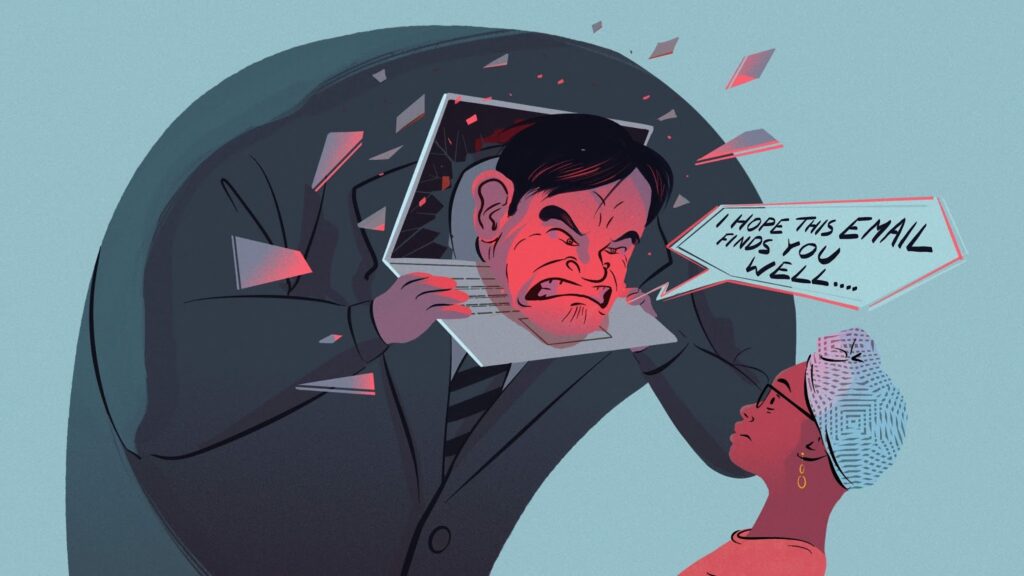Let’s face it. Freelancing is still a pioneering career choice. As a career path we’re
beyond Ferrari-speed, and closer to Apollo 11. Twenty years ago, freelancing hardly
registered, and the closest thing to Upwork.com or Freelancer.com was a portion of a Monster.com
job board. Blink – ‘cause that’s all it is in “history of work” time – and we’re now a
global force of well beyond 100,000,000 professionals. And, we’re over 3,000,000 in the
UK alone, contributing over £162 billion to the UK economy.
.
But, companies haven’t caught up with us. Lots of companies who use freelancers
haven’t really learned how to use freelancers in a win/win way. Data from my Global
Survey on Freelancing, co-sponsored by the University of Toronto, found that less than
half of the 1900 global freelancers who participated felt that their client companies
“knew how to work effectively with freelancers.”
Freelancers described their experience with clients through a series of survey items we
called the Freelancer Satisfaction with Clients Index. What we learned might be
summarized this way: clients have demanding quality requirements for the work of
freelancers, but fall short of creating an environment that supports that goal.
| This client … | Overall %Strongly Agree |
| Knows how to work effectively with freelancers | 45% |
| Work deliverables, milestones and timelines are generally fair and realistic | 46 |
| Requires top quality work from freelancers | 66 |
| Client project manager knows how to work well with freelancers | 47 |
| I have access to the information I need to meet my deliverables for this client | 52 |
| Client team members are normally friendly and helpful when I have a question or need | 69 |
| I am treated fairly and with respect in my dealings with this client company | 69 |
| The work I’m doing for this client is interesting and satisfying | 62 |
| Client team members I’ve worked with are technically and professionally competent | 56 |
| I am paid fairly for my work for this client company | 52 |
In particular, the areas that fall most short are creating fair and realistic goals, milestones and timelines, ensuring client project managers have the skills needed to work well with freelancers, ensuring freelancer access to the information needed to complete the work successfully and efficiency, and being paid fairly.
If you take a look by experience freelancing, more insight comes out:
| Item | > 1 Year | 1-3 Years | 3-5 Years | 5-10 Years | 10+Years |
| This company knows how to work effectively with freelancers | 44% | 46% | 43% | 47% | 45% |
| Work deliverables, milestones and timelines are generally fair and realistic | 38 | 35 | 34 | 40 | 46 |
| This client requires top quality work from freelancers | 60 | 67 | 70 | 71 | 69 |
| My client project manager knows how to work well with freelancers | 43 | 51 | 41 | 48 | 49 |
| I have access to the information I need to meet my deliverables for this client | 48 | 52 | 49 | 54 | 54 |
| Client team members are normally friendly and helpful when I have a question or need | 61 | 69 | 67 | 71 | 73 |
| I am treated fairly and with respect in my dealings with this client company | 60 | 69 | 68 | 71 | 73 |
| The work I’m doing for this client is interesting and satisfying | 61 | 61 | 63 | 61 | 63 |
| The client team members I’ve worked with are technically and professionally competent | 57 | 54 | 55 | 55 | 57 |
| I am paid fairly for my work for this client company | 44 | 53 | 53 | 56 | 53 |
The first few years of freelancers are obviously and appropriately a period of adjustment. New freelancers need some time and experience to get comfortable with being small business owners, whether they are full-time freelancers or moonlighting as a side-gig. Our survey data shows that it takes time, often 3 or more years, to feel fully confident. We owe new freelancers a proper education, access to a coach or mentor in the early days, and a parallel process of assessing client readiness and providing help to them in a successful on-boarding and in ongoing relationship management.
What might we do to improve the situation? I’d posit that there are four parts to solving this problem assuming that time and patience, while certainly needed, won’t be enough. Here are the bits I’m more optimistic about.
Let’s make sure new freelancers are ready by teaching them what to expect, how to respond, and by understanding and widely communicating best practice. Underpinned.com is the best at that, and the team provides its community members with the critical skills and mind-set to build a successful business. Many people also find that it helps to side-gig before jumping into full-time freelancing.
Our platforms or marketplaces must also ensure that client companies are appropriately monitored, and organize the work of freelancers professionally: their setup, on-boarding, work requirements, milestones, and deliverables. More of the best platforms are training client project managers to work successfully with freelancers. Remember, we are providing our time and expertise as freelancers in exchange for fair pay, realistic work, and respectful treatment.
Where to go, and who to call when problems arise is also important. And, it’s not just getting paid. A survey by Honeybook.com found that 54% of self-employed and freelance women experienced harassment and 60% felt physically intimidated. Platforms, take note. All freelancers deserve a safe and secure experience at work: physically, professionally, and emotionally. There’s no excuse for unprofessional treatment.
Finally, let’s celebrate the good clients as well as warn about the bad. A few organizations like Unilever are thinking ahead about the future of work, and want to build a truly flexible, blended, workforce. But, most companies aren’t that far along. And, one of the important initiatives of the AFW in 2023 will, I hope, be a way to recognize and celebrate top clients and share best practices.
Viva la AFW!




